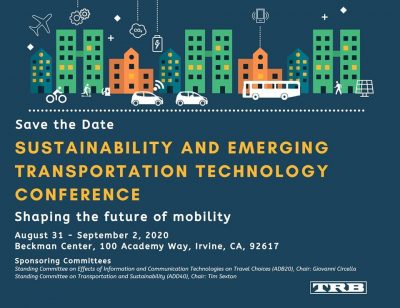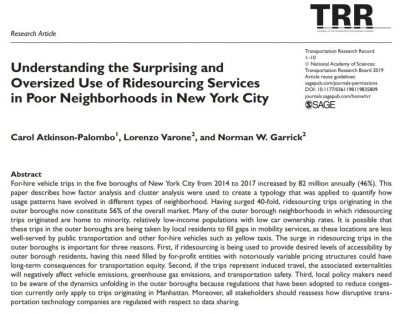The Transportation Research Board (TRB) 102nd Annual Meeting is being held January 8–12, 2023 in Washington, D.C. Researchers in Transportation Technology & Society Research Group are looking forward to sharing their work.
| Poster Session 4072 – Current Research in Transportation Equity Presentation Number: TRBAM-23-01990 Title: ” A New Approach to Understanding the Impact of Automobile Ownership on Transportation Equity” Authors: Quinn Molloy, Norman Garrick, Carol Atkinson-Palombo Wednesday, January 11 10:15 AM- 12:00 PM ET |
| Poster Session 3149 – Transportation Safety Management Systems from Start to Finish Presentation Number: TRBAM-23-04731 Title: ” Road Safety in New York City After Vision Zero for Different Land Use Contexts” Authors: Ge Shi, Yu Song, Carol Atkinson-Palombo, Norman Garrick Tuesday, January 10 1:30 PM- 3:15 PM ET |



